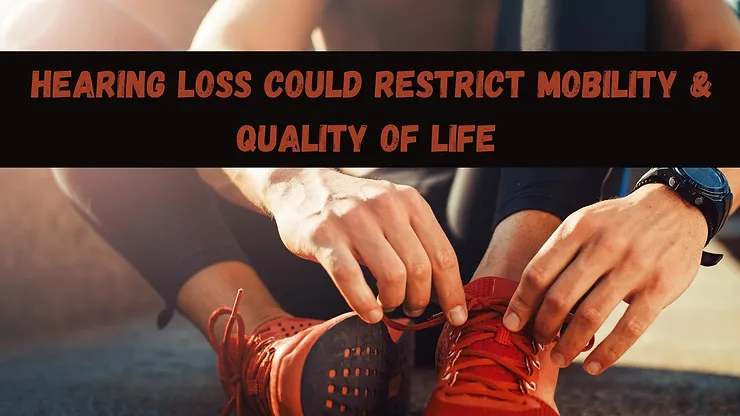
Hearing loss is a problem that affects around 48 million Americans (roughly 15% of the population). Yet the prevailing assessment is that hearing loss is undertreated in America today. With so many Americans dealing with hearing loss, many studies are conducted each year. While they vary in their scope and intent, one thing becomes more and more clear: untreated hearing loss tends to create problems for people that could be solved by a set of hearing aids.
The Early Stages of Hearing Loss
Hearing loss tends to first become noticeable when we go out in public. With a little bit of background noise, understanding speech becomes more difficult. In group situations with background noise, we notice ourselves becoming tired sooner and less able to keep up with the conversation. At this point, the best course of action is to schedule a hearing test and, if hearing aids are recommended, start wearing them.
Unfortunately, most people wait an average of seven years from the time they notice hearing loss to the time they pursue hearing aids. By getting hearing aids earlier, it is possible to avoid the annoyances and unintended lifestyle changes that come along with untreated hearing loss. Those who get hearing aids report satisfaction at a rate of 95%, when asked after one year.
For those who do not get hearing aids once they notice hearing loss, the trend seems to be a tendency toward less social activity, less physical activity, and eventually a host of negative outcomes ranging from depression and loneliness to earlier onset of cognitive decline and dementia.
Untreated Hearing Loss Has Consequences
We tend to think of hearing loss as a minor annoyance that we can work around by paying a little closer attention to things. The reality is much different from that. Even mild hearing loss (defined as 20–40 dBHL of loss) poses significant challenges in our day-to-day movements, and the result is less physical and social activity.
People with mild hearing loss tend to report having more issues with their memory. That may be one reason that mobility tends to be limited. Hearing loss can be scary in ways we’re not prepared for, and when we realize we’re not hearing everything that’s going on around us, it may feel that the safest thing to do is to avoid moving around too much. Indeed, people with untreated hearing loss do tend to suffer more accidental injuries than those who wear hearing aids.
Study Finds Restricted Mobility Among Those with Untreated Hearing Loss
A study conducted at the University of Jyväskylä and the University of Tampere in Finland found that people who had hearing trouble moved less in their local area than those who considered their hearing to be good. Out of 848 men and women aged 75–90, those with hearing trouble were twice as likely to limit their movement.
Researchers noted that the degree to which people experience their hearing trouble depends on their lifestyle prior to hearing loss. Those who are very socially active tend to experience minor hearing loss as a bigger problem than those who are typically more inclined toward domestic activities. However, it should be noted that both types of people can benefit from hearing aids, even when they may not be as subjectively troubled by their hearing loss.
Hearing Aids Can Help
Hearing aids have come a long way in recent years. They can now assess the type of environment we are in, and automatically change their programming to accommodate the space. Once, we had to switch through programs in order to find the one that best matched the environment, but now this happens automatically for the most part. People wearing today’s hearing aids are often able to forget they are even wearing them!
They can prioritize speech over background noise, making conversation a breeze for those with mild hearing loss. By tracking our motions, they can even help to focus on one speaker over another, when we point our head toward someone.
If you or a loved one is struggling with hearing loss, regardless of what stage it might be at, make an appointment for a hearing test today and find out what hearing aids can do to keep you in the conversation. Treating hearing loss early is important to maintaining the lifestyle we are used to, so don’t hesitate to get a hearing test, even if you think you might be able to manage without hearing aids for a while longer.
